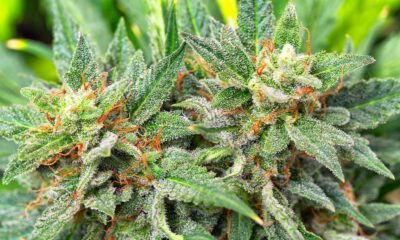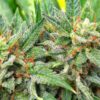
Joint Opinions
The Ban on Free Marijuana Samples Criminalizes Marijuana Legalization
State laws prohibiting marijuana samples hamper marijuana commerce and give law enforcement an avenue to crack down on legalization.
The other day, I walked past a farmer’s market set up on the sidewalk near where I live and work. I strolled without stopping past the bakery, the taco truck, and the arugula and the beets. But I stopped dead in my tracks when I saw a man selling whiskey.
I am not a whiskey person. But here was corn whiskey, rye whiskey, some vodkas and other spirits, all small-batch, all legal, and all available for sample should I want to try before I decided to buy. (Reader, I must confess: I did, and I did.)
It should probably go without saying that the entire exchange was executed without a hitch. A merchant offered a sample to a customer, the customer accepted the sample and purchased an entire unit. Nothing bad happened and nobody was hurt, because this is how commerce works almost everywhere consumable products are sold — everywhere except for the legal marijuana industry.
Nearly everywhere recreational cannabis is available from a legal and taxpaying retailer, that retailer is prohibited from offering samples to prospective customers.
In California, the United States’s largest marijuana market by a significant margin, recreational dispensaries are prohibited from offering customers freebies of any kind. In Colorado, a bill that would have finally legalized “tasting rooms” like the ones seen in nearly every winery in the United States, and the one I encountered on my stroll, was vetoed by Gov. John Hickenlooper. In both states, vendors are also prohibited from offering free product to sales personnel. This means the only legal way a retail clerk can give a customer any kind of educated information about the product they’re selling is if they buy it first.
That’s a silly rule, there ostensibly to keep up with “track-and-trace” requirements that allow regulators to see exactly where every gram of legal pot goes. But that’s a titanic undertaking, which means you can see where this is going. Silly rules that amount to little more than hoops to leap through are begging to be scoffed at and broken.
These laws also give undercover police an angle back into the marijuana industry, to seek and snuff out the scourge of free handfuls of pot. In Washington state, regulators with the state Liquor and Cannabis Board have accused a dispensary in Lacey of committing the crime of running a “try it before you buy it” promotion.
As The Associated Press reported, undercovers visited Dank’s Wonder Emporium in Lacey, Washington, where they did indeed find they were offered samples, along with a place nearby to sit and try the samples.
The fact that weed was offered for free and was smoked somewhere in a legal state is hardly the kind of offense that will undermine a society. Yet, since it is marijuana, it does indeed make headlines.
Dank’s Wonder Emporium may now lose its license, and it gets worse: regulators have forwarded the case onto local prosecutors for charges.
In this way, we see what the sample bans do. They create an avenue to keep the legal marijuana industry criminalized. They force a competitive retail business to behave in a way that is alien to competitive retail businesses. It’s dumb and it’s bad. The sample ban will be reformed away eventually, but until it is, it will give police an excuse to pretend like marijuana legalization never happened.
TELL US, have you ever been hassled by law enforcement while legally buying or using cannabis?

























